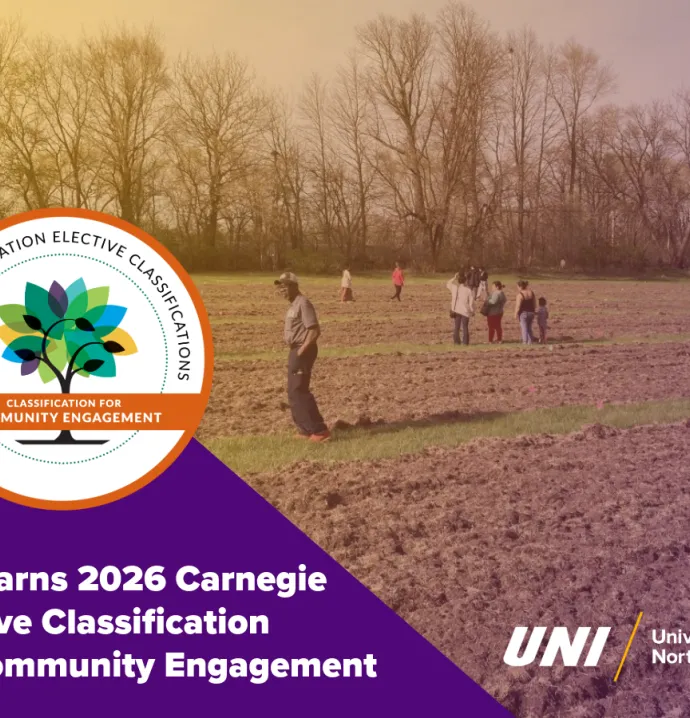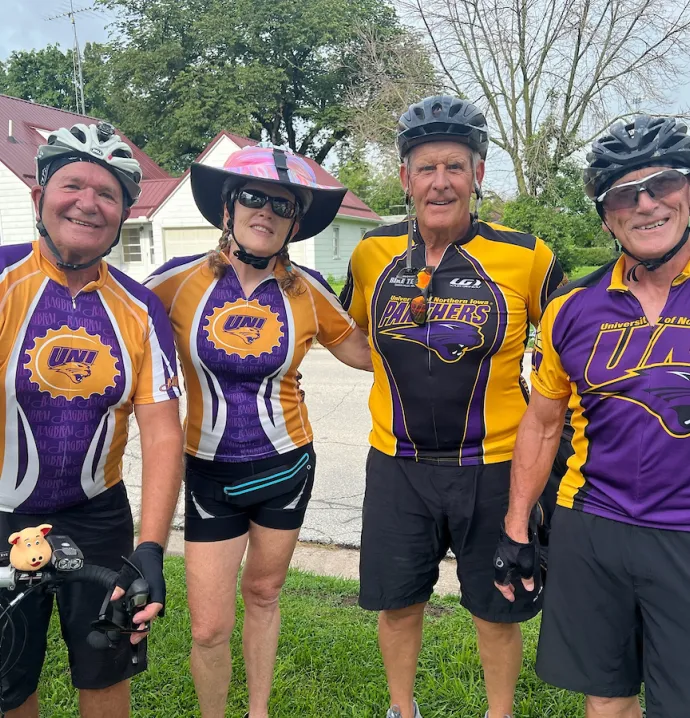Fulfilling a promise
Fulfilling a promise
Every Monday this fall semester, De’Carlos Anderson’s cell phone would light up with an inspirational text message.
The text would be from one of the first-year or transfer students involved in the newly created University of Northern Iowa Panther Promise Academy, a developing program launched this fall that seeks to improve the retention rate of students of color by building community. The group texts are one of many ways Anderson, UNI’s assistant director of student success and retention, encourages his students to support each other as they navigate a predominantly-white campus.
“The support through the Panther Promise Academy really gives them an opportunity to build a culture and community to make them feel like UNI is the place they want to be,” Anderson said. “We want these students to not only stay in college and graduate, but to become leaders along the way.”
The Panther Promise Academy was born in partnership with Student Success and Retention. Overall, UNI’s retention rate is exceptional - the fall 2020 retention rate for first-year students was 85.5%, more than 15% above the national average for four-year universities.
But university leaders have noted that there is room for improvement, particularly among UNI’s Black and Hispanic students. President Mark Nook has said the growth and retention of the campus’ minority student population is essential for UNI’s future.
“We knew we needed to do better,” said Anderson, who arrived at UNI in 2019.
The goal of the Panther Promise Academy is to give students who feel alone on campus a community of their peers from similar backgrounds. The group can lift each other up when college becomes challenging, he said..
“There’s a real value for these students to come together, let their guard down and have a dialogue about whatever issues they’re experiencing,” Anderson said.
UNI President Mark A. Nook highlighted the academy in his annual fall address, saying the program will help UNI officials identify and remove barriers to success for students from underrepresented populations.
“The Panther Promise Academy should help us lift those retention rates and lift the graduation rates of our black students but also many of our other minority students as well,” he said.
One of the drivers of lower retention rates is that students of color can feel isolated on campus. Anderson said that he often hears students say that the experience they have at orientation with programs like Jump Start, an extended orientation program in the summer designed to facilitate the successful transition of underrepresented students to UNI, doesn’t always translate to campus once classes begin.
“Jump Start is such a great experience for them because they are around other students who like them and come from similar backgrounds,” Anderson said. “But when classes start, they can find themselves in a situation where they’re the only minority in the classroom.”
Anderson was hired 14 months ago, and in his role collaborates with campus partners on several student success initiatives, including coaching for students on academic alert and probation and collaborative outreach to students faced with financial barriers. He also helps run the early readmission program for students returning from academic suspension and the Jump Start extended orientation program.
Currently, the academy is not bound to a place. This fall, students in the academy met in the Schindler Education Center for workshops.
The workshops are open and free-form. Anderson’s focus is not to recreate school by giving the students a 30 minute PowerPoint presentation, but to encourage open dialogue. By doing this, he creates an environment where the students lead the discussion, so they can speak about the issues on their minds. The pandemic and the election have been frequent topics of discussion, but the conversation can veer into more practical topics, such as financial aid and how to graduate with less debt. Sometimes Anderson will invite guest speakers, such as Robert Smith, executive director of UNI’s Center for Urban Education.
Anderson also uses the sessions to gauge the students’ interest in civic engagement and public service to develop future initiatives for the program.
If possible next semester, Anderson wants to get his students more involved in community services projects, such as working with the local Boys and Girls Club, and professional development opportunities through resume coaching and mock interviews.




